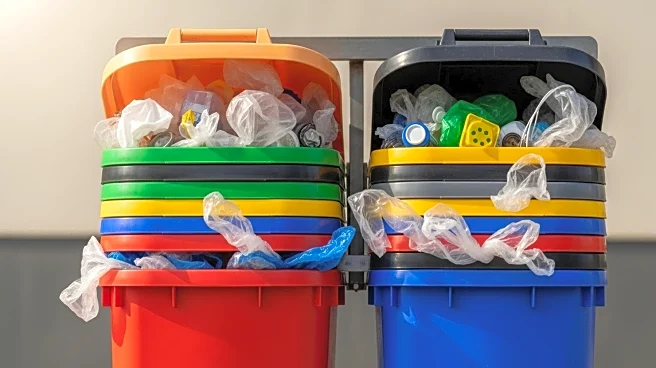What's Happening?
The UK has seen an 84% increase in plastic waste exports to developing countries in the first half of the year, primarily to Malaysia and Indonesia. Campaigners have criticized this rise as 'unethical and irresponsible waste imperialism.' The EU plans to ban such exports to non-OECD countries starting November 2026, but the UK has not implemented a similar ban. The increase in exports has raised concerns about environmental and ethical implications, with calls for the UK to follow the EU's lead and ban exports to poorer nations.
Why It's Important?
The surge in plastic waste exports highlights ongoing environmental challenges and ethical concerns regarding waste management. Exporting waste to developing countries can lead to environmental degradation and health risks due to weaker regulations and enforcement. The UK's lack of a ban contrasts with the EU's approach, raising questions about its commitment to global environmental standards. The issue underscores the need for sustainable waste management practices and international cooperation to address plastic pollution.
What's Next?
Campaigners are urging the UK to implement a ban on plastic waste exports to non-OECD countries, similar to the EU's upcoming ban. The UK government may face pressure to address the environmental and ethical implications of its waste export practices. The issue could lead to increased scrutiny of waste management policies and efforts to improve domestic recycling capabilities. International discussions on plastic pollution and waste management may influence future policy decisions.









